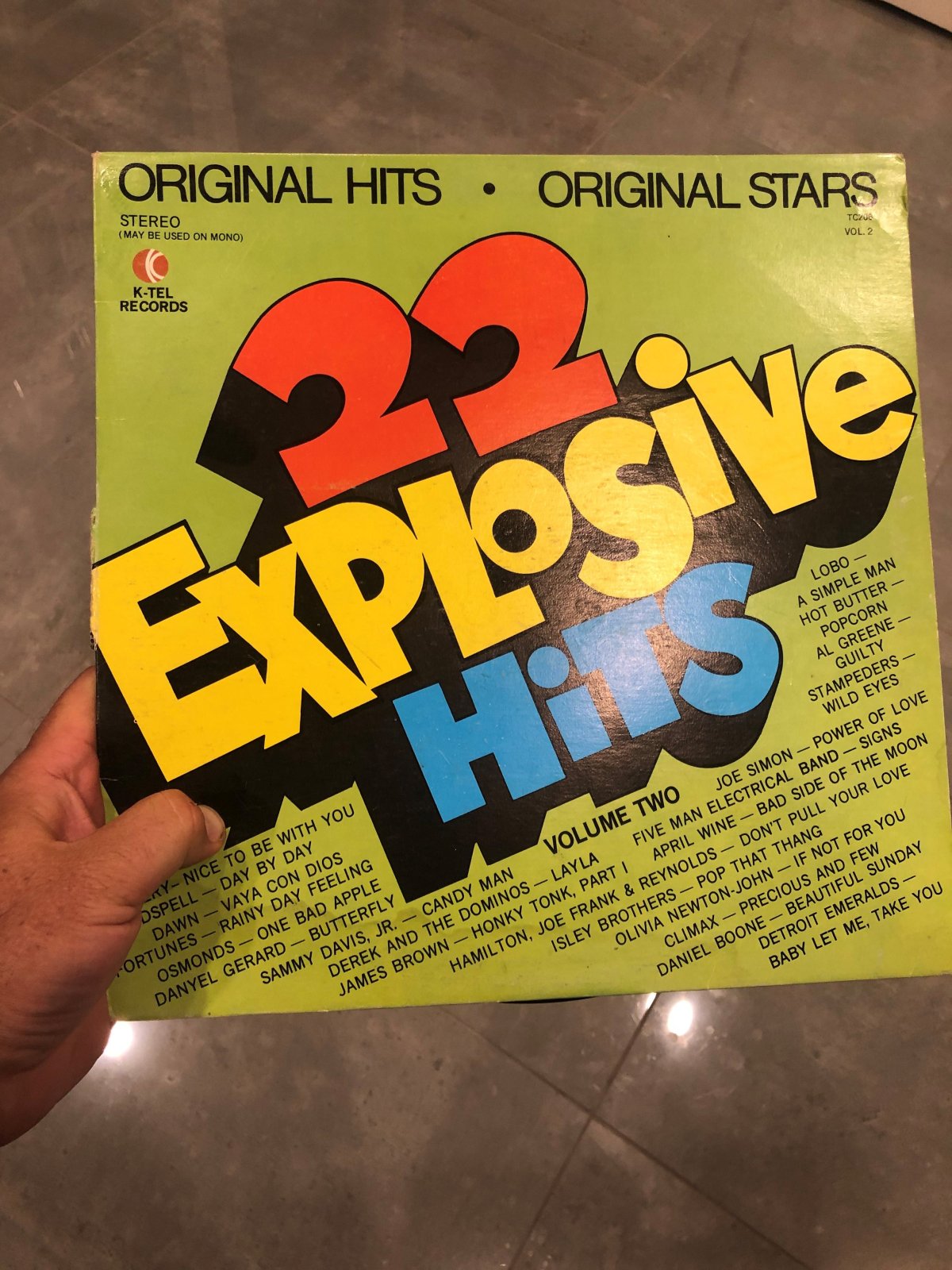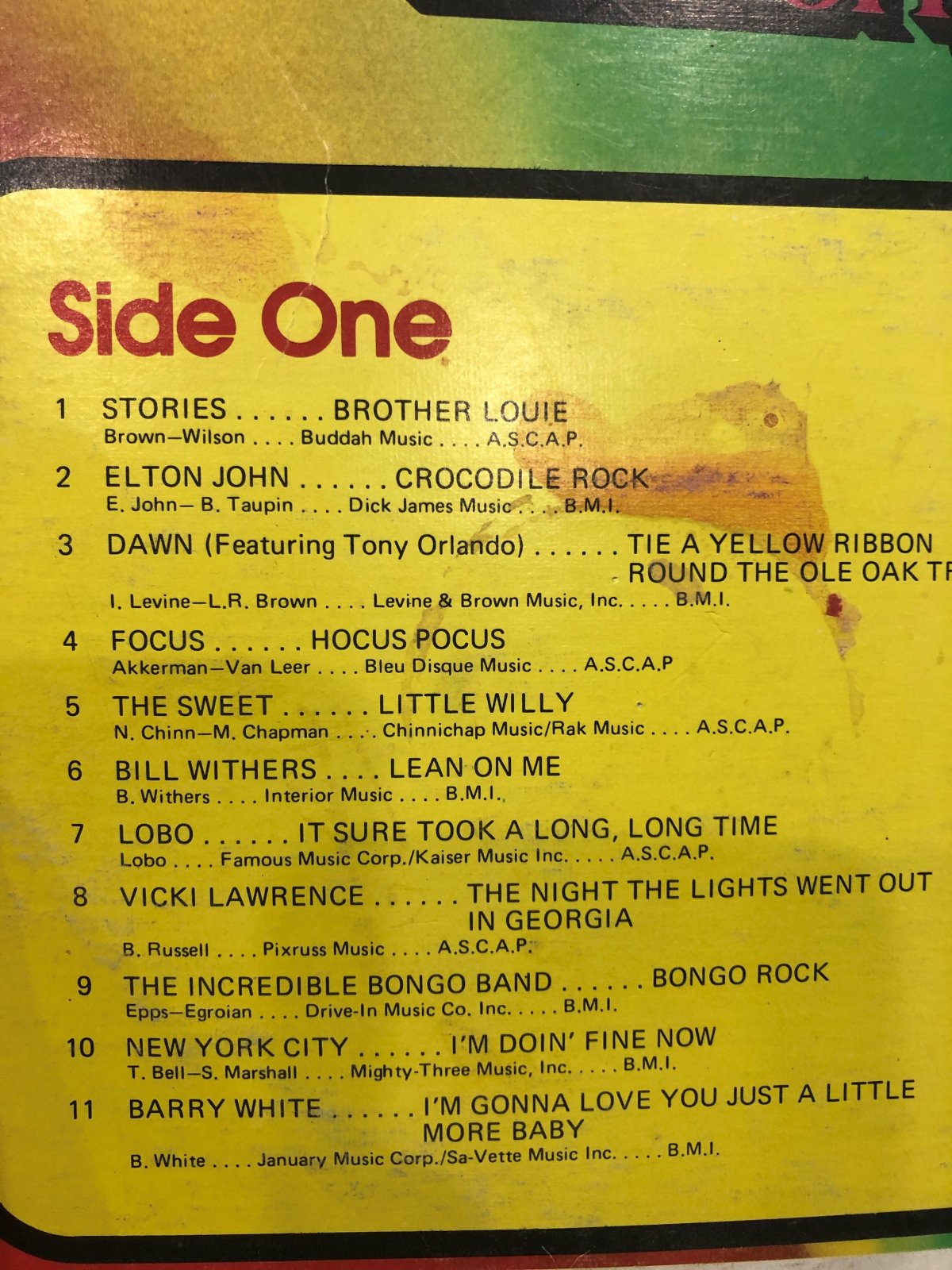Anyone who grew up from the late ’60s through to the early ’80s will be familiar with K-tel Records, the Winnipeg-based label founded by Phil Kives, a travelling salesman from Oungre, Sask., (current population: 15).

Starting out with Teflon-coated frying pans and then moving to knives, and the insanely popular Miracle Brush, Kives came up with the idea of selling compilation albums in the middle ’60s when 7-inch singles were still the main currency of the recorded music industry. His idea, novel for the day, was to issue past hits on a single album, which would then be sold at a price far less than if you bought the songs individually.
MORE MUSIC NEWS: Kelly Clarkson announces divorce from husband of 7 years
This was pretty radical, given that every other compilation out there featured feeble covers of the original recording (often overly flowery orchestra versions) and not the real thing.
Kives’ first project was 25 Country Hits in 1966, which is exactly what you got. It was followed by 25 Polka Greats and it sold 1.5 million copies in the U.S. alone. Go figure.
Record labels loved the idea of these compilations because it allowed them to squeeze more revenue out of singles that had peaked and were no longer big sellers. There was some horse-trading, too. A label might insist that in exchange for using a big hit, K-tel would also be required to take a not-so-successful single as well.
Kives based the company out of Winnipeg in a building just off Inkster Boulevard. Records were sold in stores, with a focus on department stores like Simpsons, Eatons, The Bay, Woolworth’s, Kresge’s, K-Mart, and Woolco. I also remember seeing them in a record bin at the drug store in my little prairie hometown. Yes, in the absence of an actual record store, we bought our music from the local Rexall.
To voice the TV ads, Kives hired Bob Washington, the morning man of CKRC-AM, one of Winnipeg’s three top 40 stations. He’s the guy generations heard say things like “Twenty-two original hits! Twenty-two original stars!” Then there was the tag line which was always some variation of “LP, $4.99! Tape or cassette, $5.99!”
Whilst rearranging my vinyl collection during the COVID-19 lockdown, I was surprised to discover that I still have a lot of my old K-Tel compilations, including that 22 Explosive Hits record
The sound quality of these albums was awful. To keep costs down, the records were as thin as possible and only slightly stiffer than cardboard. That meant the grooves weren’t very deep, resulting in them being able to carry less audio information. And because K-tel wanted to cram 11 songs per side, the grooves were cut extremely close together.

Get daily National news
The bass was weak, the midrange harsh, and the high end indistinct. The slightest scratch would result in the record skipping. And because physics dictates that the closer the tonearm got to the centre label, K-tel often (but not always) put some of those underperforming songs at the end of each side.
Most of K-tel records were essentially top 40 mixtapes (or today’s version of a Spotify playlist), featuring AM radio singles just past their best-before date, and often featuring some strange juxtapositions.
Here, for example, is the tracklisting for side one of a 1973 collection called Fantastic. Who would sequence Tony Orlando and Dawn’s sickly sweet Tie a Yellow Ribbon Round the Ole Oak Tree into Hocus Pocus, the instrumental prog classic? (Sorry for the apple juice stain.)
Another thing about these compilations: the goal was quantity, not quality, meaning that if a song could be edited down to a nub to make room for other songs, K-tel did it.
In the case of Hocus Pocus by Focus, the proper version runs six minutes and 42 seconds. K-tel had an edit that barely broke the three-minute mark.
Being a Canadian company, K-tel sometimes did its part for Canadian content, probably as a favour to domestic labels in return for licensing big international hits. An early ’70s release called Canadian Mint was an excellent snapshot of where the domestic music industry was at the time. Yes, there are some genuine hits here, but there’s plenty of material that’s disappeared forever. Lois Fletcher? Southcote? Hood? Dave Nichol?
There were thematic collections, too: soul/R&B, ’50s rock’n’roll, disco. K-tel was even nominated for a Grammy for its Hooked on Classics records made with the Royal Philharmonic Orchestra.
And then there were the collections of novelty songs.
I couldn’t believe all the K-tel records in my library. Sounds Spectacular. Sound Explosion. Pure Power. Music Magic. Starburst. How did they survive all my moving and library culls? No idea.
But as cheesy as they seem today, these K-tel records were the way so many of us discovered new music back in the day. While I had access to three top 40 stations in Winnipeg, there was no FM rocker when I was young. The latest K-tel release was how I and my friends learned about songs that weren’t on local radio. Where did I first hear The Faces’ Stay with Me? On 36 Super Gold Hits.
There was a time when I would have chucked these records in the nearest dumpster. Now, though, I recognize them as an important part of my musical upbringing.
READ MORE: Tekashi 6ix9ine, Nicki Minaj drop ‘Trollz,’ proceeds going to Bail Project
Phil Kives died in 2016 at the age of 87. But the company continues to earn money from publishing on some songs it once reissued. It distributes over 200,000 songs on digital platforms, licenses songs to commercials, movies, and TV. And it still releases those Mini Pops albums, featuring kids 9-13 singing the hits of the day. Check the iTunes Kids chart to see how well they’re doing.
If you’re of a certain age, I know you had some of these in your collection. Please enjoy this trip through your youth.








Comments